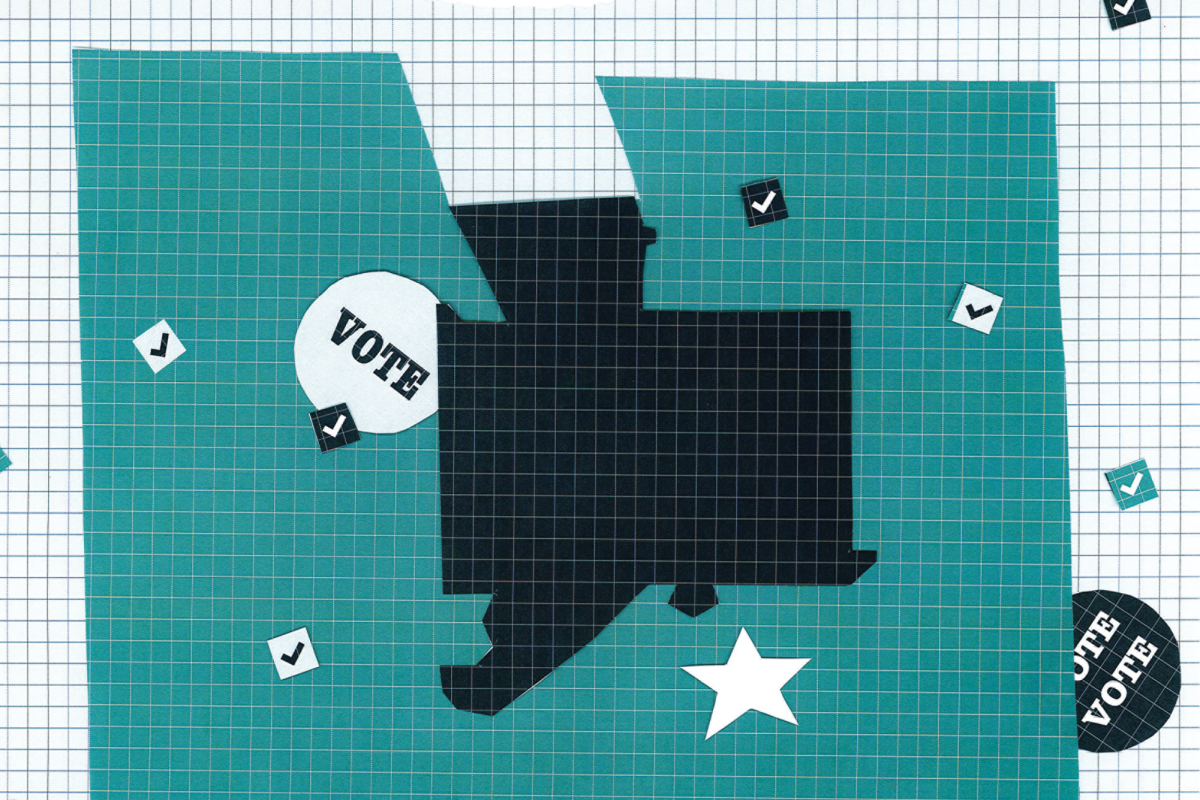In a decision and order filed Sept. 10, a U.S. district judge ruled that a former student’s claim against Ithaca College for violating Title IX will survive. The student’s claim about Intentional Infliction of Emotional Distress against Bryan Roberts, former associate dean of the Roy. H Park School of Communications, will also survive. This means that the claims will be further pursued in court.
The student, who is identified by the court as John Doe for anonymity, filed a civil lawsuit against Roberts and the college in November 2023. Doe alleged that he was sexually harassed by four then-employees of the college, including Roberts.
Doe — the plaintiff — had filed multiple claims against the college and Roberts, which the defendants tried to dismiss through motions. After the parties filed their final written arguments in February, U.S. District Judge Glenn T. Suddaby was due to rule on the dispositive motions.
The court dismissed four of Doe’s claims: three against both the college and Roberts and one against the college. The court ruled in favor of the two remaining claims: one against Roberts and one against the college.
The three dismissed claims against both defendants were negligent hiring, retention, training and supervision; negligence; and Negligent Infliction of Emotional Distress. Doe’s claim against the college for Intentional Infliction of Emotional Distress (IIED) was dismissed, but his IIED claim against Roberts was not.
The next step in the litigation process is for both defendants to file an answer. According to a text order filed Sept. 11, an initial conference is scheduled for Oct. 17 via Microsoft Teams.
Emily Rockett — vice president, general counsel and secretary to the Board of Trustees at the college — said that at the initial conference, attorneys will meet with the judge and set a schedule for discovery. Discovery is a stage of the trial where both the plaintiff and the defendant formally commence the process of exchanging information about the evidence and witnesses they plan to present during the actual trial.
Roberts responded briefly via email to The Ithacan’s request for comment.
“I do hope that the Ithacan does the right thing and reports clearly and accurately how all but two of the allegations have been dismissed before formal judicial proceedings have even begun,” Roberts said. “I think it is very telling about the validity and honesty of the claims made.”
A spokesperson of Erin Peake, Doe’s lawyer, sent a statement via email to The Ithacan. In the statement, Peake said the claims against the defendants are strong.
“The fact that multiple college employees in positions of power preyed on a vulnerable freshman beginning when he was just 18 is sickening,” the statement said. “The college victimized him again by publicly releasing information about his identity without his consent. Without question, the conduct of the school and many of its now-former employees has adversely affected our client’s health, well-being, and educational experience.”
Negligent Hiring, Retention, Supervision and Training
Doe’s claim of negligent hiring, retention, supervision and training was dismissed by the court in favor of Roberts and the college.
The document cites that to establish the cause of negligent hiring, retention, supervision and training, the “employer knew or should have known [that] the employee [] [had] propensity for the conduct which caused the plaintiff’s injury.”
The court held that Roberts was not an employer and did not hold authority in hiring, retaining, supervising or training the other three former employees of the college, who also allegedly made “harmful, unwanted, unwelcome, nonconsensual and/or hostile sexual advances.”
The three former employees were Ron Trunzo, former associate director for residential life and student conduct and community standards; Marc Greene, former director of senior student teacher placements in the Department of Music Education; and Casey Stebbins, former lead cashier of dining services.
Trunzo, Greene and Stebbins did not respond to a request for comment by the time of publication.
“There are no factual allegations plausibly suggesting that any of these individuals worked in the Park School or were specifically hired, supervised or trained by Defendant Robert,” the document from the court said.
Jack Bryant, associate professor and degree program director of Media Arts, Sciences and Studies, was also mentioned in the lawsuit. Doe claimed to have reported to Bryant that he “was in an unwelcome, unsafe, threatening and/or nonconsensual sexual relationship” with Roberts.
Bryant did not respond to an opportunity to comment at the time of publication.
The court held that Doe did not accuse him of sexual harassment, abuse or assault. Doe claimed to connect with Bryant on Grindr, who confided in him about previous sexual relationships that he had had with students.
Thus, the court says that Doe “has not alleged that Mr. Bryant engaged in relevant conduct” that would support the negligent hiring, retention, supervision and training claim.
The court dismissed this claim of Doe’s against the college on the assertion that Roberts’ sexual engagement with students is not indicative of a “propensity to engage in sexual abuse or harassment of students.”
The document points out that violating the college’s intimate relationship policy is a different question than sexual abuse and harassment of students.
“Put simply, although there are perhaps ethical questions implicated by a college faculty member’s choice to engage in sexual conduct with students [it] does not suggest a propensity to engage in tortious sexual abuse or harassment,” the document states.
Similarly, the court ruled against Doe’s allegation that the college was aware of individuals using Grindr on campus, but it is not indicative of sexual abuse or harassment of students.
Claim of Negligence
The college and Roberts had filed a motion to dismiss the negligence claim by Doe, arguing that it was duplicative of his Title IX case. While the court ultimately dismissed Doe’s negligence claim, ruling in favor of Roberts and the college, it recognized that Doe could file a Title IX and negligence claim at the same time.
Negligence is the failure of an individual to act reasonably, or act carelessly toward someone they owe a duty toward.
The court explained in its ruling that the college does not foreclose a duty based on the actions of its employees. This means that if there was any harm caused to Doe, it was not because of the college, but because of the actions of its employees.
The order also pointed out that Doe does not specify “where Defendant Ithaca College had control over Defendant Roberts’ conduct” during conversations that took place over Grindr, text messages, phone calls and interactions on campus.
“The question is therefore whether the harm caused here by these on-campus incidents would have been foreseeable to Defendant Ithaca College such that the scope of the duty extended to conduct here,” the court asked.
The court dismissed Doe’s claim for negligence in favor of Roberts, because “the conduct underlying this claim consists of intentional acts [and Doe] cannot state a cause of action for negligence against Defendant Roberts related to that conduct.”
NIED and IIED
A claim for Negligent Infliction of Emotional Distress (NIED) can be filed against any emotional distress that might have been caused, but the court stated that a “threat to physical safety or fear of physical harm is a requirement.”
The court held that while Doe points out that he was traumatized and had to engage in therapy, it is not sufficient to prove the “genuineness” of his distress.
According to the decision and order, a claim of Intentional Infliction of Emotional Distress has four aspects to it: extreme conduct; intentional actions or disregards for a high possibility of something that might cause emotional distress; a causal relationship between conduct and “injury” and extreme emotional distress.
The court held that while Doe could have avoided Roberts’ alleged acts by simply leaving or exiting, the “feared consequences to [Doe’s] collegiate or post-graduate career by engaging in such refusals raise at least an interference that he was not able to completely avoid Defendant Roberts’ alleged acts.”
The claim was dismissed for the college because of lack of plausible facts to prove that the college “had notice of any such conduct until it was brought to the attention of the Title IX office.”
Rockett sent The Ithacan a similar statement as before and said the college’s Title IX office and Office of Human Resources investigate reports of sexual harassment and violations of the college’s intimate relationship policy.
“Reports of any suspected misconduct can be made directly to the Title IX Office, to the Office of Human Resources, or the Office of Public Safety,” Rockett said via email. “Those reports can be made in person, electronically, or through the College’s Bias Impact Reporting process.”
Rockett said the college’s Sexual Harassment and Assault Response & Education website provides information on sexual violence awareness.














